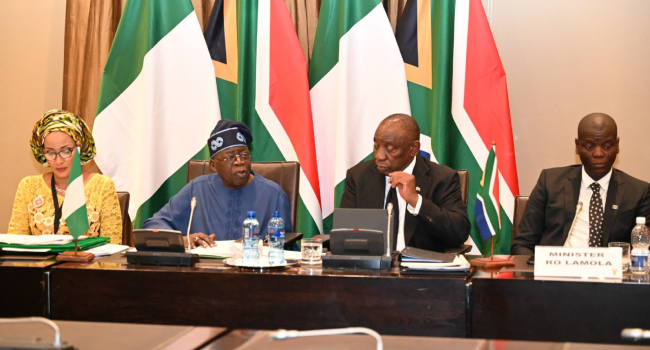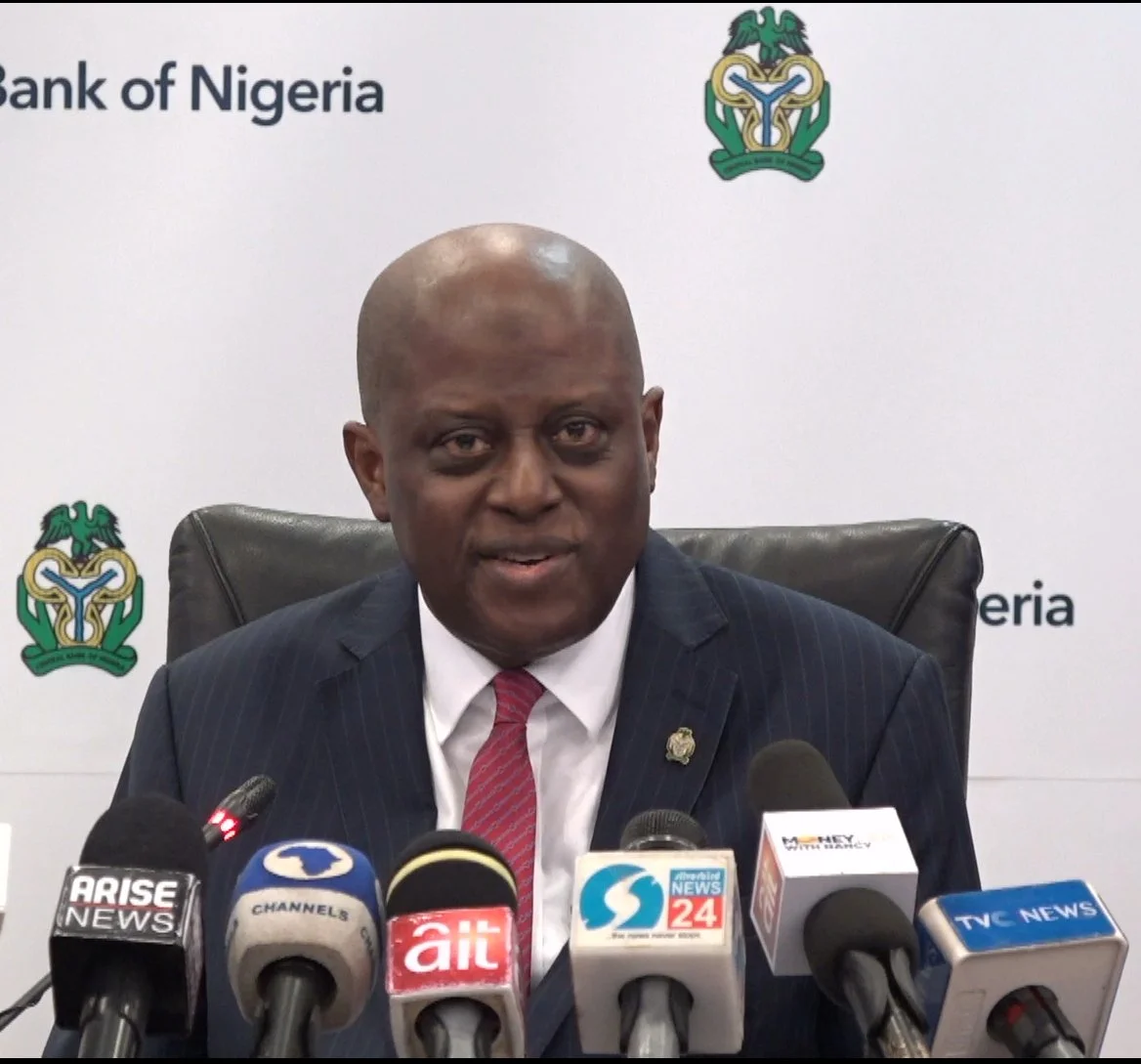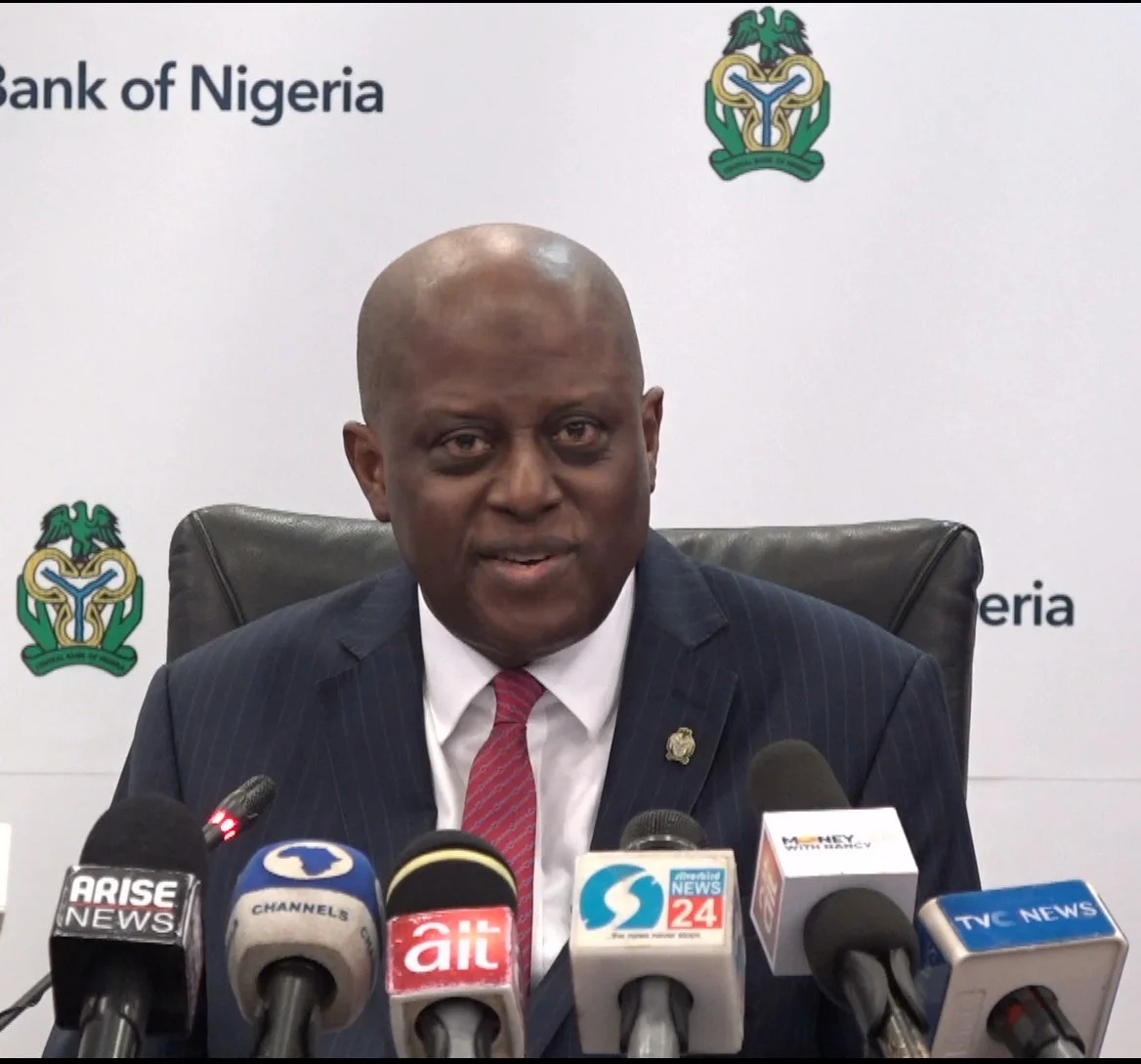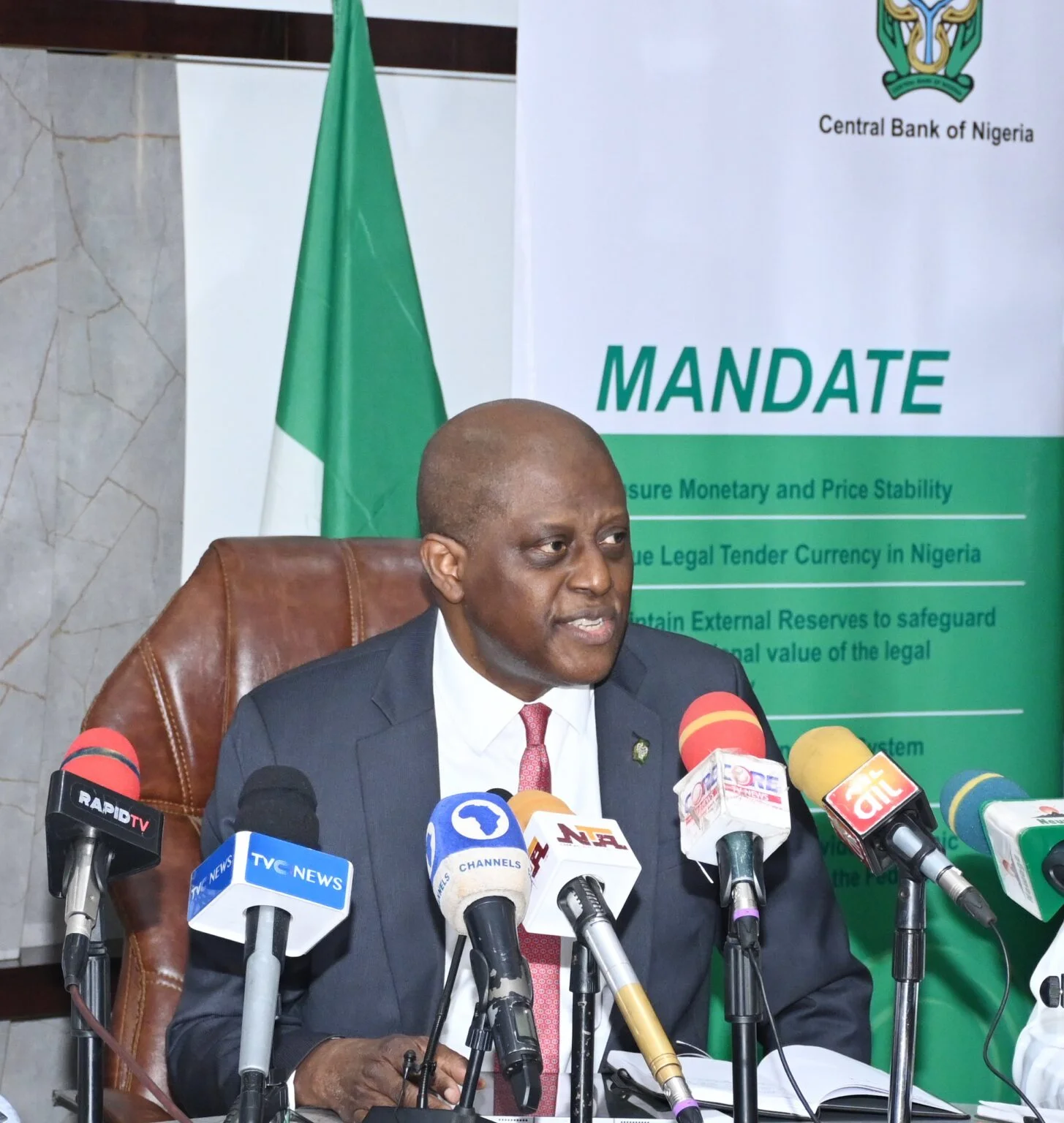Nigeria and South Africa have operationalised the Joint Ministerial Advisory Council on Industry, Trade, and Investment to enhance economic cooperation between the two leading African economies.
President Cyril Ramaphosa said this at the Nigeria -South Africa Business Roundtable on Tuesday in Cape Town, South Africa.
At the roundtable, President Bola Tinubu said that Nigeria was open for business and ready to provide stability, security and the rule of law for businesses to thrive, Mr Bayo Onanuga, Special Adviser to the President, Information and Strategy, said in a statement.
At the event attended by business leaders, government officials, and trade stakeholders, Tinubu expressed commitment to address issues discouraging South African investors from growing their businesses and franchises in Nigeria.
The president also called on South Africa to reciprocate by allowing Nigerian companies to operate and flourish in South Africa.
President Tinubu assured that Nigerian officials would continue to collaborate with their South African counterparts to facilitate the implementation of the agreed mandates under the Bi-National Commission.
“Nigeria and South Africa are conjoined twins tied by the hips not only for survival but for the prosperity of the people,” he said.
Tinubu said Nigeria was undergoing very stringent positive economic reforms to serve the people of Nigeria and bring prosperity to Africa.
“The reforms have begun to see the light of the day. You have no better investment than in Nigeria. You cannot earn better on your investments elsewhere except in Nigeria,” he said.
Ramaphosa recalled that the Joint Ministerial Advisory Council on Trade was inaugurated during his State Visit to Nigeria in 2021.
Its aim was to address trade and investment challenges, foster policy alignment, and create a conducive environment for business growth in both countries.
“Today, we agreed on the full operationalisation of the council. This will support a conducive environment for improved trade and investment.
“Through the council, we hope to ensure the efficient resolution of trade- and investment-related challenges,” he said.
He acknowledged the strategic importance of both nations in their respective regions and the need to diversify trade relations to move beyond oil and gas dependency.
“South Africa runs a large trade deficit with Nigeria, mainly due to oil and gas imports. We need to diversify our trade to ensure a mutually beneficial partnership.
“We are greatly encouraged by the presence of South African companies in Nigeria, just as we welcome Nigerian companies in South Africa.
“We do recognise that challenges still exist within our respective operating environments that limit the expansion of investment and sometimes impact on the operations of companies,” he said. (NAN)





